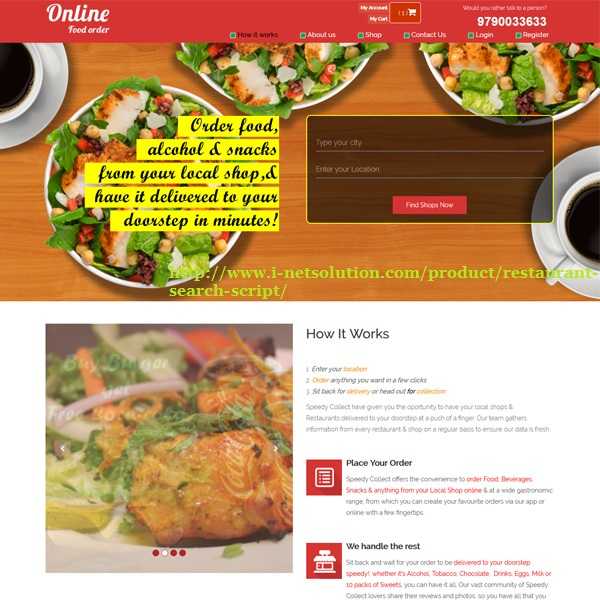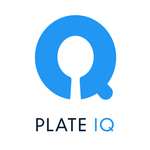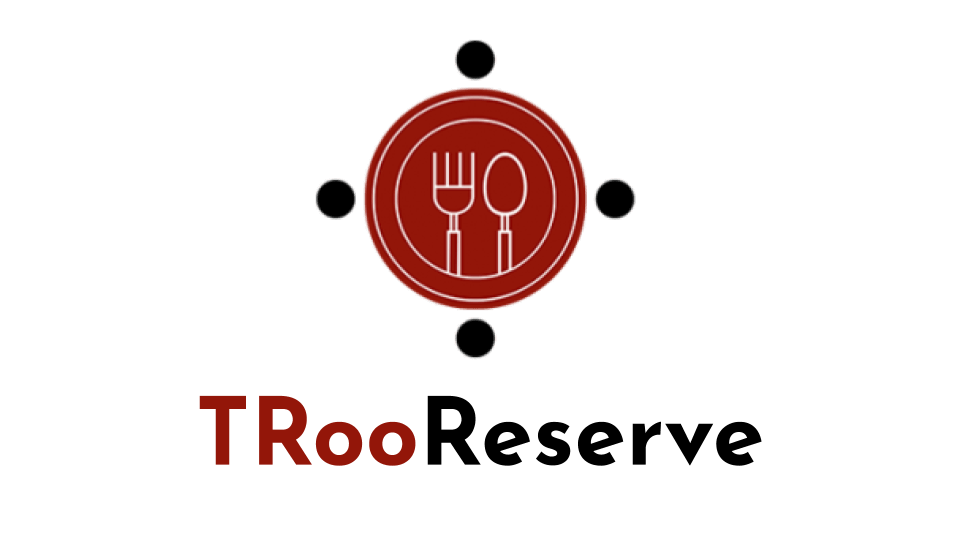Description

Advanced Just Eat clone

Dinlr Waiter
Comprehensive Overview: Advanced Just Eat clone vs Dinlr Waiter
Creating a comprehensive overview of Advanced Just Eat clone, Dinlr Waiter, and GENIUS requires analyzing each product's offerings, target markets, and unique selling points. Below is an exploration of these aspects:
a) Primary Functions and Target Markets
Advanced Just Eat Clone
- Primary Functions: This is a software solution designed to mimic the functionalities of platforms like Just Eat, facilitating online food ordering and delivery. Key features typically include a user-friendly interface, restaurant listings, menu management, order tracking, payment processing, and customer relationship management tools.
- Target Markets: Primarily targets startups and entrepreneurs looking to venture into the online food delivery market. It caters to restaurant owners looking to expand their business online without developing a platform from scratch.
Dinlr Waiter
- Primary Functions: Dinlr Waiter is a mobile point of sale (mPOS) system tailored for the F&B industry. It supports order taking, bill checking, payment acceptance, and integrates with kitchen management tools enhancing operational efficiency.
- Target Markets: Aimed at restaurants, cafes, and bars that require seamless order and payment processing capabilities. It is suitable for both small-scale food outlets and larger chain restaurants seeking to optimize their in-house operations.
GENIUS
- Primary Functions: As a comprehensive ordering and payment solution, GENIUS offers features like menu digitalization, order management, and a customer loyalty system. It often includes advanced analytics capabilities for business insights.
- Target Markets: Targets a wide range of F&B businesses, from small local eateries to large dining establishments, looking for a robust all-in-one solution to manage their operations and enhance customer engagement.
b) Market Share and User Base
Determining the precise market share and user base for these products can be challenging without access to proprietary market data, but here are generalized observations:
-
Advanced Just Eat Clone: As a customizable solution, its market share is not about a singular user base but a portion of numerous white-labeled platforms that entrepreneurs deploy globally. Its popularity depends on the demand for ready-made food delivery solutions.
-
Dinlr Waiter: Predominantly used in certain regions where Dinlr has a strong presence. Its market share consists of F&B businesses prioritizing efficient in-house operations over general delivery services.
-
GENIUS: Popular in markets where integrated customer experience and business intelligence are key differentiators. The solution’s adaptability appeals to varied restaurant sizes, potentially giving it a more widespread footprint in technologically advanced regions.
c) Key Differentiating Factors
-
Customization and Flexibility:
- Advanced Just Eat Clone: Offers significant customization, allowing users to tailor the platform to their branding and operational needs.
- Dinlr Waiter: Focuses on efficiency and simplicity, with set capabilities meant to streamline operations rather than broad customization.
- GENIUS: Known for its comprehensive system and adaptability, allowing for a tailored fit that supports both customer engagement and backend operation management.
-
Operational Focus:
- Advanced Just Eat Clone: Primarily revolves around online food ordering and delivery.
- Dinlr Waiter: Centers around in-store order and payment processes.
- GENIUS: Strives to cover both online and in-store needs, emphasizing an integrated approach to business insights.
-
Target User Experience:
- Advanced Just Eat Clone: Prioritizes customer-facing features, focusing on ease of use and wide accessibility for end-users.
- Dinlr Waiter: Enhances the waiter and cashier experience, making transaction and order processes quick and efficient.
- GENIUS: Balances seamless customer interaction with robust backend analytics, providing both operational efficiency and data-driven business insights.
Each product caters to different niches within the food and beverage industry, leveraging their unique strengths to tap into distinct segments of the market.
Contact Info

Year founded :
Not Available
Not Available
Not Available
Not Available
Not Available

Year founded :
Not Available
Not Available
Not Available
Not Available
Not Available
Feature Similarity Breakdown: Advanced Just Eat clone, Dinlr Waiter
When comparing an Advanced Just Eat clone, Dinlr Waiter, and GENIUS, it’s essential to consider their core functionalities, user interfaces, and unique features that might differentiate them. Let's break it down:
a) Core Features in Common
All three of these products generally aim to facilitate food ordering and restaurant management in some capacity. Here are the core features they likely have in common:
-
Ordering System:
- Just Eat Clone: Online food ordering and delivery platform functionality.
- Dinlr Waiter: Focus on in-restaurant order management, enabling staff to take orders directly from customers.
- GENIUS: Might integrate or support food ordering within its broader scope.
-
Menu Management:
- Ability to manage and customize menu items, including descriptions, prices, and availability updates.
-
Payment Processing:
- Support for various payment methods (credit/debit cards, digital wallets).
-
User Accounts and Profiles:
- Allow users/customers to create, manage, and personalize profiles and preferences.
-
Order Tracking and Status Updates:
- Real-time updates on order status, delivery times, etc.
-
Integration Capabilities:
- API or other integration capabilities to work with existing systems (POS, delivery partners, etc.).
b) User Interface Comparison
The user interfaces of these products would differ based on their primary use cases:
- Advanced Just Eat Clone:
- Likely focuses on user-friendly, intuitive interfaces aimed at consumer convenience. Emphasizes ease of navigation, search capabilities, and streamlined checkout processes.
- Dinlr Waiter:
- Aimed at restaurant staff with features optimized for speed and efficiency within a high-pressure environment. Likely to have a straightforward, operation-focused interface for quick order input and management.
- GENIUS:
- Could have a highly customizable interface depending on its overall feature set, which might go beyond just food ordering (possibly also including broader restaurant management functionalities).
c) Unique Features
Some features may distinguish one platform from the others:
-
Advanced Just Eat Clone:
- Special promotions, loyalty programs, and partnerships with various restaurants.
- Advanced AI-based recommendation engines to suggest popular dishes or new restaurants.
-
Dinlr Waiter:
- Specific functionality for handling in-house dining scenarios, such as table assignment, split billing, and staff communication tools.
- May include features to enhance waitstaff efficiency, such as quick access to frequent orders or allergy alerts.
-
GENIUS:
- Might provide broader tools for complete restaurant lifecycle management, which could include inventory management, employee scheduling, and comprehensive analytics.
- Could feature extensive customization or modular design to fit various types of dining establishments.
When evaluating these systems, it’s important to consider the primary user of each platform (consumers for Just Eat clones, staff for Dinlr Waiter, and possibly managers/owners for GENIUS) which drives the design and feature focus of each product.
Features

Not Available

Not Available
Best Fit Use Cases: Advanced Just Eat clone, Dinlr Waiter
To explore the best fit use cases for Advanced Just Eat clone, Dinlr Waiter, and GENIUS, it's important to understand the unique features and intended purposes of each solution:
a) Advanced Just Eat Clone:
-
Best Fit for:
- Online Food Delivery Startups: This solution is ideal for entrepreneurs looking to enter the online food delivery market. It offers features similar to popular platforms like Just Eat, including restaurant listings, menu management, customer reviews, and integrated payment options.
- Multi-Restaurant Aggregators: Businesses looking to aggregate multiple restaurants into a single app would benefit greatly, as the clone supports multi-vendor functionalities.
- Emerging Markets: In regions where such digital solutions are less saturated, there is a great opportunity to capture market share quickly using a ready-made platform.
-
Industries/Company Sizes:
- Primarily targets small to medium-sized businesses (SMBs) within the food and beverage industry.
- Suitable for both individual entrepreneurs and established companies looking to digitize operations.
b) Dinlr Waiter:
-
Preferred Scenarios:
- Restaurants with Table Service: Dinlr Waiter is perfect for eateries that offer dine-in services and want to streamline their ordering processes. It allows waitstaff to take orders electronically, which minimizes errors and speeds up service.
- High-Volume Dining Establishments: In busy environments where efficiency is critical, Dinlr Waiter can automate order processing and improve table turnover rates.
- Integration with POS Systems: It is a great fit for restaurants looking to integrate directly with POS systems, enhancing the overall management of orders and inventory.
-
Industries/Company Sizes:
- Targets full-service restaurants, cafes, and bars, typically in the SMB segment, but can scale up for larger establishments with multiple locations.
- Well-suited for both independent and chain restaurants focused on enhancing in-house customer experience.
c) GENIUS:
-
When to Consider:
- Data-Driven Enterprises: Businesses that prioritize data analytics and AI-driven insights to optimize various operations should consider GENIUS.
- Companies in Search of Automation: Industries looking for smart automation tools to handle tasks such as predictive maintenance, customer relationship management, or personalized marketing.
- Scalability and Customization Needs: Organizations that require highly customizable and scalable solutions would benefit as GENIUS often offers flexible modular options.
-
Industries/Company Sizes:
- Applicable across various industry verticals such as finance, healthcare, e-commerce, and technology, where data plays a crucial role in decision-making processes.
- Suitable for mid-sized to large enterprises looking to leverage AI and machine learning to enhance productivity and efficiency.
d) Catering to Different Vertical and Company Sizes:
-
Advanced Just Eat Clone: Primarily caters to the food and beverage sector, accommodating startups and growth-stage companies seeking a foothold in the online food delivery space.
-
Dinlr Waiter: Appeals predominantly to the hospitality industry, especially those needing point-of-sale (POS) integration and efficiency in service, fitting businesses of various sizes but with an operational focus on dining experiences.
-
GENIUS: Spans multiple industries, adaptable for businesses of varying scales that are technology-forward and prioritizing data-centric strategies. Its flexibility makes it a choice for organizations aiming for strategic digital transformation.
Each solution excels in different areas, tailored to specific business needs and operational settings. Choosing the right one depends on the business model, industry focus, and size of the company seeking to implement these technologies.
Pricing

Pricing Not Available

Pricing Not Available
Metrics History
Metrics History
Comparing undefined across companies
Conclusion & Final Verdict: Advanced Just Eat clone vs Dinlr Waiter
To determine which product offers the best overall value among the Advanced Just Eat clone, Dinlr Waiter, and GENIUS, it's important to consider several factors including functionality, ease of use, scalability, pricing, and support. Here's a comprehensive conclusion and final verdict:
a) Best Overall Value
GENIUS appears to offer the best overall value for users seeking a comprehensive and scalable solution. It provides a robust set of features suitable for various business sizes and types, often bundled in a competitive pricing model. Its flexibility and adaptability are key strengths, catering to a wide array of user needs without excessive customization.
b) Pros and Cons
Advanced Just Eat Clone:
- Pros:
- Tailored for food delivery businesses, offering a familiar interface.
- Extensive customization options support niche market adaptations.
- Strong user interface mimics successful models.
- Cons:
- Focused mainly on the food delivery niche, which may limit broader applications.
- Requires significant initial customization, possibly increasing costs and setup time.
- Support and updates may not be as comprehensive as broader platforms.
Dinlr Waiter:
- Pros:
- Optimized for in-restaurant order handling, reducing wait times and improving service efficiency.
- User-friendly interface designed for quick staff training.
- Competitive pricing for small to medium-sized businesses.
- Cons:
- Primarily suited for in-dining experiences, with limited delivery or remote capabilities.
- Scalability might be limited for larger enterprises or rapid-expansion models.
- Slightly less versatile when integrated with other business platforms.
GENIUS:
- Pros:
- Comprehensive feature set supports both in-dining and delivery services.
- Highly scalable, suitable for both small enterprises and large chains.
- Strong integration capabilities with various third-party services.
- Cons:
- Might come with a steeper learning curve due to its extensive features.
- Pricing can escalate with premium features or large-scale deployment.
- May require more technical support during the initial setup phase.
c) Specific Recommendations
-
For Users Focused on Food Delivery: The Advanced Just Eat clone is ideal if the primary business focus is on providing food delivery services, especially if your business model closely aligns with existing successful platforms.
-
For In-Dining Services: Dinlr Waiter excels in environments where quick and efficient in-person service is essential. Restaurants looking to streamline order-taking should consider this option, particularly if growth expansion is not an immediate concern.
-
For Comprehensive Needs and Scalability: GENIUS is recommended for users who need a versatile solution with the potential for growth. If your business model includes both in-dining and delivery services or you anticipate evolving needs, GENIUS offers the flexibility to adapt as your business scales.
Ultimately, the choice depends on the specific needs of the business, projected growth, and the operational focus. Assessing these alongside budget considerations and long-term goals will guide users to the most fitting product for their unique situation.
Add to compare
Add similar companies



